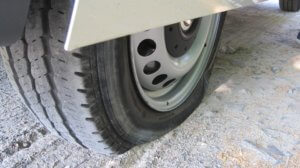 When it comes to TPMS systems, many people often tend to ignore it. You may believe that this amber light does not mean that much but that is far from the truth. This is why it is critical that you know a few integral things about the TPMS sensors and why they are so important.
When it comes to TPMS systems, many people often tend to ignore it. You may believe that this amber light does not mean that much but that is far from the truth. This is why it is critical that you know a few integral things about the TPMS sensors and why they are so important.
Not All Cars have These Systems
If you had a car that was manufactured in 2005 and older, there is a chance that your car will not have this system at all. The government put this system in place and required it for vehicle manufacturers to start and integrate these systems at 20% volume of their fleet. By September 2007, this percentage moved to a 100%. If you do not have this system in your car, then you can resort to after-market systems to add to your car.
Direct and Indirect Systems
There are two different types of TPMS systems, direct and indirect. When it comes to direct or indirect, the distinction differs when checking if your wheel has a sensor or not. If your car has a sensor in the tires that is relaying the pressure back to the car. If it does, then it is a direct system, and if it doesn’t, then it is indirect.
Some of these systems use other mechanisms such as an ABS sensor, or rolling diameter sensors to check the tire pressure. If you have a direct system, then the sensor is vulnerable to a life expectancy. At some point, the sensor inside the tire will die. When that happens, you will have to replace it otherwise the TPMS warning light will never go out.
The average life expectancy on this sensor is more or less ten years. Many cars will have sensors that last much longer than that. However, you should understand that at the 10 year mark, if your TPMS light does not go away even after adjusting to the right pressure, then you will have to seek assistance from a professional.
You Cannot Change Their Batteries
Once you take the car to a professional, they will hook up a TPMS scan tool and find out whether your sensor has battery life. If they are low on battery life, you cannot replace the old batteries to new ones. This is because these TPMS sensors are completely sealed. Therefore, these are components that you would want to simply replace.
They are a Big Safety Feature
TPMS systems make sure that you do not suffer from catastrophic blow-outs and you are fully aware of your tire’s air pressure. They are ensuring that you have no trouble with handling or steering the car. They also help save you money from the expenses that come with tire replacements and repairs.
These sensors will sense your tire’s air pressure when it is low and not depleted. This means that you can quickly prevent depletion from happening thanks to the TPMS systems.